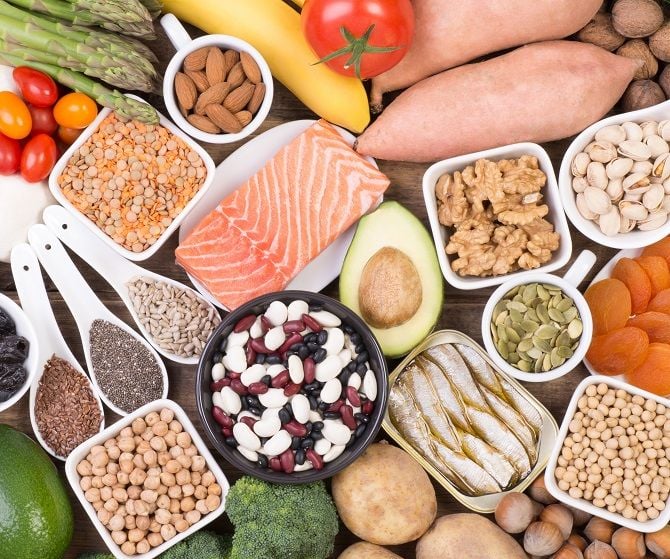By Dr Alison Sifton
Do you need Meat for Protein with Dr Alison Sifton
Hi, everybody! I'm Ali, also known as the Veg Medic on Instagram and I'm a doctor who works in London.
I have teamed up with Push Doctor today to talk to you guys about protein. So, as somebody who follows a vegan diet and with it being in the middle of January, with loads of people embarking on trying veganism for a month, it seems like quite a topical thing to talk about protein and where we get our protein from in our diet.
And the number one question I get asked when somebody wants to become more plant-based or adopt a vegan diet is But where will I get my protein?
And it's actually quite a funny thing because what people seem to believe is that the only way you can consume protein in your diet is by eating varied sources of meat, when actually you can find loads of protein in varied sources of plants as well.
I think what people fail to realise is that your leafy green vegetables, like broccoli, spinach, kale, peas, loads of grains and nuts, including nut butters and soy derived products, all contain high amounts of protein and the difference between proteins derived from meat and proteins derived from plant-based products is really the genetic makeup of these proteins.
Essentially, you have your complete proteins found in meat and - what I mean by complete protein - is a protein source that contains all essential amino acids.
Contrarily, we have our incomplete protein sources, and these are coming from plant-based products.
What you might imagine is that an incomplete protein source is one that doesn't contain every essential amino acid, but by having a varied diet and incorporating loads of different plant protein sources in your diet, you can easily meet the daily recommended intake of protein, which is approximately 0.8 grams of protein per kilo of body weight.
The daily recommended intake of protein for people who are participating in resistance training and find themselves in the gym all the time increases slightly to 1.2 grams of protein per kilo of body weight.
For those of you wondering where I'm getting this information from - it comes directly from the British Nutrition Foundation and the British Dietetic Association.
I want to tell you about some of the foods that are quite high in plant-based proteins.
Kale is approximately 3.4 grams of protein per 100 grams, spinach is almost 3 grams of protein per 100 grams and broccoli is almost 4 grams per cup of broccoli. Corn is about 3 grams and half a can of chickpeas are about 9 grams, and it's similar with lentils as well as beans.
Flaxseed is also quite a superfood, so it's got about 6 grams of protein for 30 grams serving - it's really good in oats and cereal in the morning.
Almonds have about 7.4 grams per 30 gram serving and hazelnuts have about 4 grams per 25 grams serving. Oats are typically 13 grams of protein per 30 gram serving.
Now I also mentioned soy derived products, so that's things like tofu which is really high in protein with about 9 grams per 75 grams serving.
I think the take-home message from all of this is that we can easily meet protein requirements by eating a solely plant-based diet and even if adopting a completely plant-based diet isn't something that interests you, we should be focusing on eating plant-based source of proteins.
The issue we seem to see more of in health care is people not consuming enough fibre in their diet.
By focusing on consuming plant-based proteins, you'll also be consuming loads of the other nutrients that come with eating a plant-based diet.

